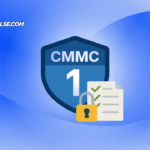Time management is a skill that isn’t natural to everyone; in fact, procrastination seems to be more common, and most people have to make a strong effort to stay on track each day. Luckily, there are plenty of resources available online or on your preferred device, such as a smartphone, that makes planning and prioritizing super simple. This article will show you some of the most popular types of tools you can use to schedule and manage your time more efficiently so that you can get the most out of your day.
The Calendar
A calendar is a classic, and everyone knows how they work; the issue is that it’s not used as often as it should be by a lot of people, despite it being right at your fingertips if you have a smartphone.
Simply writing in and making note of important dates and deadlines into one can help you plan ahead and help prevent you from forgetting these events. By knowing what’s ahead, you can prioritize and get things done or simply prepare for the future, and this alone makes it one of the most useful tools.
Daily Planners
While calendars can be great for planning in advance, a lot of people have time management concerns that are more involved in the short term.
It will take time to get used to, but making lists of what you have to do every day will be incredibly helpful because it will take out a lot of the thinking and help you stay focused on each task as they come up.
Time Trackers
Having a good idea of what you should expect to be doing every day is crucial, but one can argue that it’s just half of the battle.
It’s also important to know how much time you are spending on each task; more than likely you’ll find out that you’re not using your time as wisely as you can be. Luckily, once you are aware of it, you can start to fix it – there are helpful apps like Toggl that can help you plan and track at the same time.
The Importance of Planning Your Day In Advance
Stress and anxiety are a common concern for a lot of people who lead busy lives, and while it’s true that they can attribute some of it to having too much on their plate, it can equally be traced to how people carry out their tasks.
These types of issues can cause people to feel overwhelmed and unmotivated and, in turn, this leads to procrastination and that inevitably turns into individuals rushing and scrambling to catch up. Naturally, this causes people to stress out even more, and it can become chronic.
Having a solid plan and committing to getting them done will help relieve this because it feels good to accomplish tasks and be productive, and once your priorities are taken care of, you’ll probably have more free time on your hands because you’ll be less likely to waste it. This means you’ll have more time for the people and activities that you enjoy.
However, if mental health issues, even as simple as a lack of motivation or too much disorganization, are getting in the way, it may be worthwhile to visit a counselor or therapist to help you resolve these concerns that might be preventing you from being as productive as you could be.
Online services like BetterHelp are flexible and make it easy to squeeze a session into your schedule, especially with the other tools at your disposal. Just input your appointments into your planner, and you’ll realize that getting help is something you can always fit in.
Conclusion
Learning to manage your time is a skill that needs to be developed, but you don’t have to figure it out entirely on your own. With these types of tools, time management can be made simple, and you can be prepared to tackle every day with ease and make the best use of the time you have available.
Author Bio: Marie Miguel Biography

Marie Miguel has been a writing and research expert for nearly a decade, covering a variety of health- related topics. Currently, she is contributing to the expansion and growth of a free online mental health resource with BetterHelp.com. With an interest and dedication to addressing stigmas associated with mental health, she continues to specifically target subjects related to anxiety and depression.












